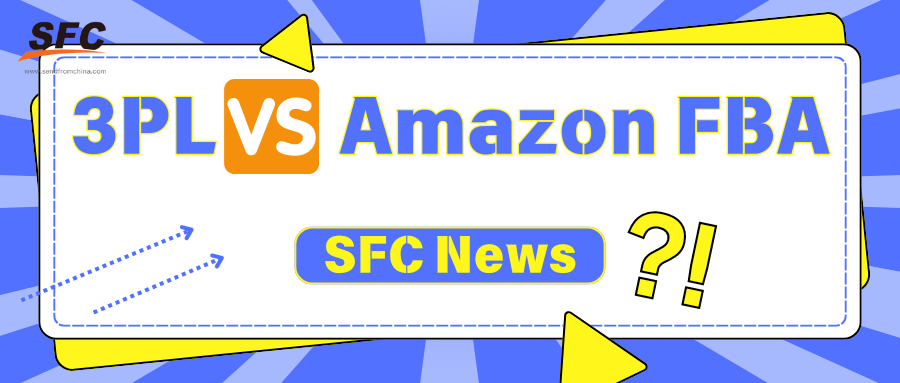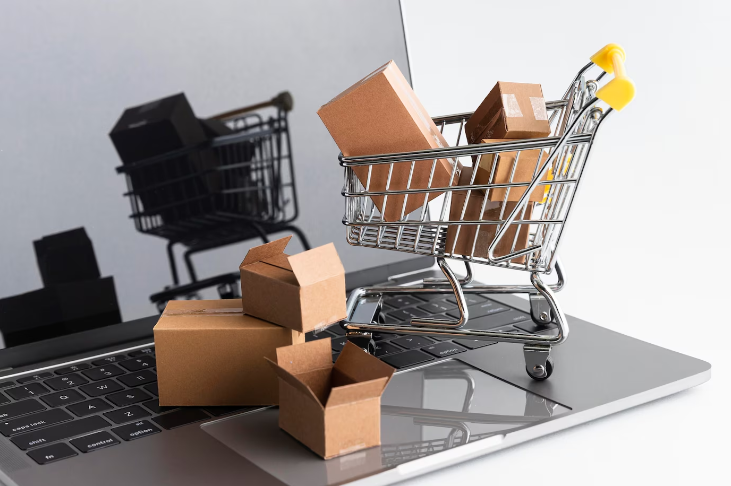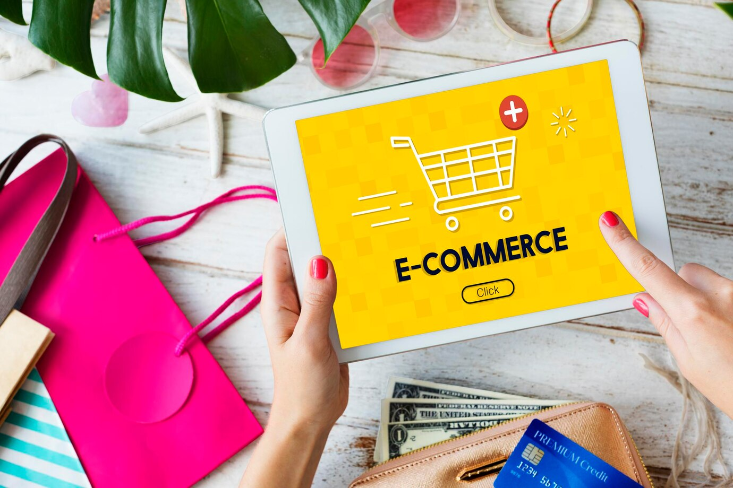Table of Contents
3PL vs Amazon FBA: A Comprehensive Analysis
Time: Aug 27,2024 Author: SFC Source: www.sendfromchina.com
E-commerce success hinges on efficient and reliable order fulfillment, but with so many options, which should you choose? Third-Party Logistics (3PL) and Amazon Fulfillment by Amazon (FBA) are two leading contenders, each offering distinct advantages depending on your business’s unique needs.In this article, we’ll break down the key differences between 3PL and Amazon FBA, helping you navigate the complexities of e-commerce logistics and decide which solution aligns with your long-term goals. Dive in to find out which fulfillment strategy can propel your business to new heights.

1. What Does 3PL Mean? Understanding Third-Party Logistics
Third-party logistics (3PL) refers to outsourcing logistics and supply chain management to a specialized external service provider. A 3PL company manages various aspects of your logistics, including warehousing, inventory management, picking & packing, transportation, and order fulfillment.Businesses often partner with 3PL providers to scale their operations without the overhead of maintaining in-house logistics. By utilizing a 3PL, companies can leverage the expertise, infrastructure, and technology of the logistics provider to improve efficiency and reduce costs.
In recent years, the growth of e-commerce has led to increased demand for 3PL services. Companies are increasingly seeking ways to optimize their supply chains, manage fulfillment across multiple sales channels, and provide superior customer experiences—all of which 3PLs are well-equipped to handle.
2. What Is Amazon FBA

Amazon FBA is particularly popular among small to medium-sized e-commerce businesses because it allows them to take advantage of Amazon's vast logistics network and Prime shipping program. By leveraging FBA, sellers can focus on growing their business while Amazon handles the complexities of order fulfillment.
However, FBA is not without its challenges. Sellers must adhere to Amazon's strict requirements, pay various fees, and navigate potential limitations on inventory storage.
3. Pros and Cons of Working with a 3PL

Pros of Working with a 3PL
Scalability: 3PL providers offer scalability that allows businesses to adjust their logistics operations based on demand. Whether you're experiencing seasonal peaks or steady growth, a 3PL can adapt to your needs.Cost-Effectiveness: By outsourcing logistics to a 3PL, businesses can avoid the capital expenditures associated with owning and operating their own warehouses and transportation fleets. Additionally, 3PLs often negotiate better shipping rates due to their high volume, passing savings on to their clients.
Access to Expertise and Technology: 3PL companies specialize in logistics, meaning they have the knowledge, experience, and advanced technology to optimize supply chain operations which can result in improved efficiency, faster shipping times, and enhanced customer satisfaction.
Focus on Core Business: Outsourcing logistics allows businesses to focus on their core competencies, such as product development, marketing, and sales, rather than getting bogged down in the complexities of supply chain management.
Global Reach: Many 3PL providers have a global presence, allowing businesses to expand their reach into international markets without the logistical challenges of navigating foreign regulations and shipping processes.
Cons of Working with a 3PL
Loss of Control: When working with a 3PL, businesses relinquish some control over their logistics operations leading to challenges in maintaining consistent branding, customer experience, and service quality.Dependency on a Single Provider: Relying heavily on a single 3PL provider can create risks if the provider encounters operational issues, financial instability, or if the partnership deteriorates.
Upfront Integration Costs: Integrating with a 3PL provider's systems and processes can require significant upfront investment in time and resources including setting up technology integrations, training staff, and aligning business processes.
Communication Challenges: Coordination between a business and its 3PL provider is crucial for success. Miscommunications or delays in information sharing can lead to errors in order fulfillment, inventory management, and customer service.
Variable Costs: While 3PL services can be cost-effective, they may also introduce variability in logistics costs based on fluctuating demand, fuel prices, and other factors outside the business's control.
4. Pros and Cons of Working with Amazon FBA

Pros of Working with Amazon FBA
Prime Eligibility: Products fulfilled through FBA are eligible for Amazon Prime, which can significantly increase sales by attracting Prime members who prioritize fast and free shipping.Streamlined Logistics: Amazon handles the entire fulfillment process, from storage to shipping, allowing sellers to focus on other aspects of their business. It includes managing returns and customer service.
Global Reach and Exposure: With FBA, sellers can access Amazon's global marketplace, reaching millions of potential customers worldwide. Amazon's vast infrastructure enables quick and efficient shipping to customers around the globe.
Advanced Inventory Management: Amazon's sophisticated inventory management systems help sellers track stock levels, manage restocking, and reduce the risk of overselling or stockouts.
Customer Trust: Customers often trust products fulfilled by Amazon more than those shipped directly by sellers. The trust can lead to higher conversion rates and repeat purchases.
Cons of Working with Amazon FBA
Fees and Costs: Amazon FBA comes with a range of fees, including storage fees, fulfillment fees, and long-term storage fees. These costs can add up quickly, especially for sellers with slow-moving inventory or large, bulky products.Lack of Branding Control: When using FBA, sellers have limited control over the branding and packaging of their products. Amazon's standardized packaging may not align with a seller's brand identity, potentially diminishing the customer experience.
Inventory Storage Limits: Amazon imposes storage limits on FBA sellers, particularly during peak seasons like Q4, which can be a significant challenge for sellers with high inventory turnover or those launching new products.
Increased Competition: Selling on Amazon means competing with millions of other sellers, including Amazon. The competition can lead to price wars, reduced margins, and challenges in maintaining visibility.
Complex Returns Process: While Amazon handles returns, the process can be complex for sellers. Returned items may be damaged or unsellable, leading to potential losses.
5. What Is the Best Alternative to Amazon FBA

Direct Fulfillment: For businesses with in-house logistics capabilities, direct fulfillment allows complete control over the fulfillment process, branding, and customer experience. Direct fulfillment is ideal for companies with established infrastructure and a desire to maintain a hands-on approach to their supply chain.
Multi-Channel Fulfillment (MCF): Amazon's Multi-Channel Fulfillment service allows sellers to use Amazon's logistics network for orders placed on other platforms, such as eBay or Shopify. MCF provides the benefits of FBA's efficiency and global reach without limiting sales to Amazon's marketplace.
Hybrid Fulfillment: Some businesses choose a hybrid approach, combining the benefits of both FBA and 3PL services. It allows sellers to leverage FBA for certain products or regions while using a 3PL provider for others, optimizing costs, flexibility, and customer service.
Self-Fulfillment with Technology Solutions: Utilizing advanced fulfillment software and automation tools, businesses can manage their logistics operations more efficiently without relying on external providers. Self-fulfillment is suited for companies with a strong emphasis on technology and process optimization.
Third-Party Logistics (3PL): As discussed earlier, 3PL providers offer a compelling alternative to FBA, providing scalability, flexibility, and access to expertise. Businesses can tailor their 3PL partnerships to their specific needs, optimizing costs, and ensuring consistent branding and customer experience.
6. What to Consider When Choosing Between 3PLs and Amazon FBA

Cost Considerations
When comparing 3PL services and Amazon FBA, cost is a critical factor. While FBA provides an all-in-one solution with predictable fees, these costs can quickly escalate, particularly for products with low margins or slow turnover. Conversely, 3PL providers offer more flexibility in pricing, allowing businesses to negotiate rates based on volume, service level, and specific needs. However, businesses must account for potential hidden costs, such as technology integration, communication challenges, and variable logistics expenses.Scalability and Flexibility
Scalability is another crucial consideration. Amazon FBA excels in providing seamless scalability, allowing businesses to grow without worrying about logistics constraints. However, this scalability comes with trade-offs in control and customization. 3PL providers, on the other hand, offer more flexibility in tailoring services to a business's unique needs. Businesses must evaluate their growth trajectory and choose a solution that aligns with their long-term goals.Control Over Branding and Customer Experience
For businesses prioritizing brand identity and customer experience, 3PL services offer more control over packaging, shipping, and customer interactions. Amazon FBA's standardized processes may not align with a brand's unique vision, leading to a less personalized customer experience. Businesses should consider how much control they are willing to relinquish in exchange for FBA's logistical convenience.Inventory Management and Technology Integration
Effective inventory management is essential for maintaining profitability and customer satisfaction. Amazon FBA provides advanced inventory management tools but imposes limitations on storage space and inventory turnover. 3PL providers offer more customized inventory management solutions, often integrating with a business's existing technology stack. Businesses should assess their inventory management needs and technology infrastructure when choosing between FBA and 3PL services.7. When Is the Best Time to Switch to Your 3PL Partner

Business Growth
As your business scales, the limitations of Amazon FBA may become more apparent. If you're experiencing rapid growth or expanding into new markets, transitioning to a 3PL provider can provide the flexibility and scalability you need.Cost Efficiency
If FBA fees are cutting into your margins, it may be time to explore more cost-effective options. Analyzing your logistics costs and comparing them with 3PL services can help determine if a switch is financially beneficial.Branding and Customer Experience
If maintaining control over branding and customer experience is a priority, switching to a 3PL provider may be the right move. The transition allows for more personalized packaging, shipping, and customer interactions.Inventory Management Challenges
If you're facing inventory storage limits, stockouts, or other inventory management issues with FBA, a 3PL provider can offer more customized solutions. Transitioning during a period of stable inventory levels can minimize disruption.Market Expansion
If you're expanding into new sales channels or geographic markets, a 3PL provider can offer the flexibility and expertise needed to navigate these complexities. Timing the switch during a period of market expansion can align logistics with your growth strategy.8. Get Started with SFC Services
SFC stands at the forefront of order fulfillment with cutting-edge facilities in Shenzhen, China. Utilizing sophisticated software, we specialize in seamless and trustworthy fulfillment solutions for ecommerce, dropshipping, and crowdfunding platforms. At SFC, we are dedicated to accelerating your business growth through secure warehousing, efficient processing, customizable packaging options, and adaptable shipping strategies while saving you time and money.Whether you have or do not have a fulfillment partner, particularly your products manufactured in China, you should consider SFC. Click the button below and get help from SFC logistics experts.
What Makes SFC Special
Over 17 Years of 3PL and Order Fulfillment ExperienceAll-in-one Tracking Number
Popular Platform API Integration
30 Days of Free Storage
No Hidden Fee
Custom Packaging
Worldwide shipping solutions
Value-added Services
9. FAQs
1. Can I use both Amazon FBA and a 3PL provider simultaneously?
Yes, many businesses use a hybrid fulfillment strategy, leveraging both FBA and 3PL services to optimize costs, scalability, and customer experience.2. What are the main cost differences between 3PL services and Amazon FBA?
Amazon FBA fees are generally more predictable but can be higher due to storage and fulfillment costs. 3PL services offer more flexibility in pricing but may include hidden costs related to integration and communication.3. How do 3PL providers handle returns compared to Amazon FBA?
3PL providers typically offer customized return management solutions, allowing businesses to maintain control over the returns process. Amazon FBA handles returns, but sellers have limited control over the process and potential product damage.4. What is the biggest advantage of using Amazon FBA over a 3PL provider?
The biggest advantage of Amazon FBA is its seamless integration with Amazon's marketplace, providing sellers with access to Prime members and Amazon's global logistics network.5. Is it difficult to switch from Amazon FBA to a 3PL provider?
Switching from Amazon FBA to a 3PL provider can be complex, requiring careful planning, technology integration, and coordination. However, with the right strategy, the transition can be smooth and beneficial for business growth. Post Views:3812
Post Views:3812
Copyright statement: The copyright of this article belongs to the original author. Please indicate the source for reprinting.
Previous Post
Next Post
TAGS
Hot Research
Get a Custom China Fulfillment Solution with FREE Storage for 30 Days
 Want to know about our services, fees or receive a custom quote?
Want to know about our services, fees or receive a custom quote?
 Please fill out the form on the right and we will get back to you within a business day.
Please fill out the form on the right and we will get back to you within a business day.
 The more information you provide, the better our initial response
will be.
The more information you provide, the better our initial response
will be.






 TAGS:
TAGS: